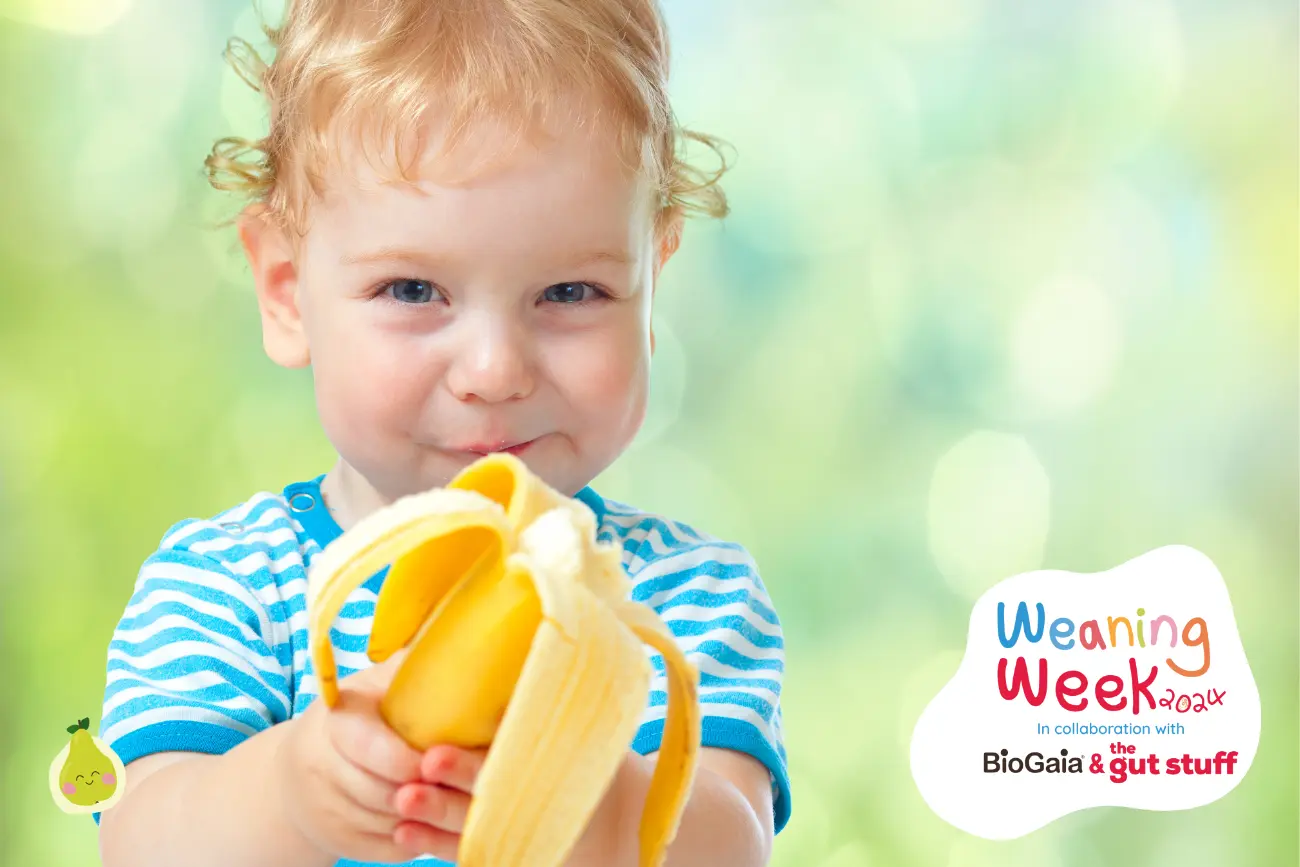
How should you wean your baby to support good gut health?
How should you wean your baby to support good gut health?
With gut health on parents’ minds more than ever and weaning as such a pinnacle milestone for babies’ gut health, this blog will cover some top tips for how to wean your baby to support good gut health for life. In this blog, we’ll cover:
- Why gut health is essential for babies, for their current and future health
- What foods support a baby’s gut microbiome development
- Top tips for weaning for good gut health
Why is gut health important for babies?
During the initial stages of your baby’s life, various factors like delivery method, type of milk feed (breast or formula), medication, and geographical location play pivotal roles in shaping their gut microbiome.
Studies have indicated a critical timeframe extending up to approximately three years of age, during which a child’s ‘gut garden’ flourishes and expands. This period corresponds with the importance of the first 1000 days of a baby’s life, crucial for promoting healthy growth and setting the stage for lifelong well-being.
Gut health extends far beyond just digesting food. A healthy gut microbiome supports the optimal absorption of nutrients in food, the development of a robust immune system, and even factors like cognitive functioning. The collection of bacteria in a baby’s gut and how this develops can also impact aspects of their health, from gut-related conditions such as colic and reflux to the risk of developing allergies, asthma, and even obesity later in life. Prioritising good gut health in babies can set the foundation for a healthier and happier life.
What foods support a healthy gut microbiome during weaning?
As your baby transitions to solid foods, it marks a significant phase in their biome’s evolution. Introducing various foods fosters the growth of a diverse community of microorganisms, akin to welcoming ‘new friends’ into their gut.
If I could offer just one piece of advice to support the development of a healthy gut microbiome during weaning, it would be to provide a wide range (variety) of foods to your baby. Offering a variety of foods or ‘ dietary diversity’ during weaning helps feed your baby’s gut garden and supports the growth of many helpful bacteria in their gut. Variety also has other benefits; it gives your baby plenty of opportunities to develop the experience and skills to accept a wide range of foods during weaning.
You won’t be surprised to hear that a wide variety of plant-based foods, e.g., fruits, vegetables, beans, nuts/seeds, herbs, spices and grains, can be beneficial, alongside foods like yoghurt or fermented milk-based foods, which contain beneficial bacteria. Check out the tips below to help you feed your baby’s biome with various gut-friendly foods.

Top tips for weaning for excellent gut health
- Offer plenty of fruits and vegetables—rich in fibre- to help feed those good gut bacteria, vitamins, and antioxidants to support gut and overall health. Choose many different colours, and aim to offer them at every meal! Some fruits and vegetables, including garlic, onions and bananas, are also prebiotic foods – the perfect ‘food’ for your baby’s good gut bacteria.
- Hello, Healthy fats—Fat is a crucial nutrient for growing babies and should contribute 30-40% of their daily energy intake. Sources such as avocados, nuts and seeds (e.g., well-ground or in butter form) and foods like hummus can also support a balanced microbiome.
- Work in those Wholegrains – whilst striking a balance with fibre is essential for developing guts, as too much can impact your baby’s poo habits and even appetite, offering a variety of grains, e.g. wheat-based cereals, oats, quinoa, and barley is a great way, to nourish those beneficial gut bacteria.
- Incorporate herbs and spices – not just a dream for developing palates, herbs and spices count as plant-based foods and can have beneficial effects on the gut, from offering a prebiotic effect (feeding good bacteria) to having anti-inflammatory effects.
- Dollop in yoghurt and other fermented foods – these foods are a great source of nutrients like calcium and contain beneficial bacteria that can support gut health.
- Avoid highly processed foods – Often packed with excess fat and sugars, these foods aren’t recommended during weaning anyway. Still, research shows that countries with diets rich in these processed foods have different gut microbiomes compared to communities where they’re not part of the regular diet.
